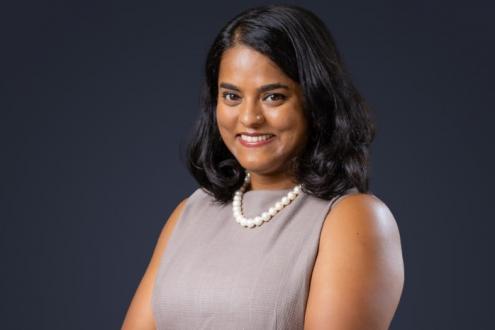The Globalisation of Wealthy Indian Clients: Views from Shreya Rao of AZB & Partners

Sep 12, 2023
What are the key concerns amongst wealthy Indian families these days as their businesses, financial investments and indeed family members spread increasingly across the globe? That was the key question posed to a handful of experts during the final panel discussion at the Hubbis Wealth Management Forum in Mumbai on August 31. Shreya Rao, Partner at law firm AZB & Partners, offered her views on these and other key issues.
Shreya is a partner with leading Indian law firm AZB & Partners and co-heads the firm’s Private Client Practice. She advises promoter families, HNWIs, international private clients and their institutions on a range of issues, including the structuring of inter–generational wealth transfers through trusts and wills, the purchase and bequeathal of luxury assets, philanthropy and family governance structures. She has been recognized as one of Asia’s Top 15 Private Wealth Lawyers by Asian Legal Business, and is ranked in tax and private client law by the Chambers and Partners and Legal 500 reviews. Shreya is the lead jurisdiction editor for India for STEP and one of two Indian members of The International Academy of Trusts and Estates Law. She holds an LLM from the Harvard Law School.
AZB & Partners describes itself as one of India’s prominent law firms and explains that its services cover the entire corporate, commercial, regulatory, financial and tax planning aspects of modern businesses.
Glass half full
Responding to a question from the chair on how wealthy Indian families have been structuring their offshore wealth, Shreya first observed that India is a difficult place for outsiders to assess or understand. “I think the one thing that you need to remember is the saying that gets bandied around in the context of India, namely that everything you say about India, the opposite is equally true,” she quipped. “So, in this context, there are very wealthy Indian families who are indeed sophisticated and have been thinking about business and estate structuring and planning for a long time. But at the same time, there are also other examples of billionaires who do not even make wills.”
Taking things more seriously
Having said that, Shreya reported that there is no doubt that prominent Indian families are increasingly serious about organising their affairs more professionally. Part of this has, she explained, been prompted by the introduction of the Insolvency and Bankruptcy Code several years ago, which compelled families to separate their businesses from their personal finances because there had been far too much commingling between the two. She added that this impetus had been furthered by the introduction of a more creditor-friendly regulatory environment.
“Actually, as we see this, these developments have been hugely positive, because it has compelled better governance practices and more professionalisation, including in the family office space,” she stated.
Another key trend is that Indians are increasingly investing abroad in businesses and financial assets and properties.
Plan ahead
All these changes, she explained, make it increasingly important for these families to have the right structures, and to plan properly. She said this panel discussion was not the forum to go into detail on these matters, but she did want to highlight how important it is to understand and adhere to the rules, for example the regulatory rules regarding how Indians can send money overseas. “These are issues that wealthy families here obsess about somewhat, and indeed they are vitally important to get right,” she added.
Shreya turned her focus to the preferred jurisdictions through which Indian families like to live and potentially where they also like to create their planning and structures, noting that quite often they make their first steps based on their gut feelings or heart. She cited Bollywood movies of Indians dancing on the streets of London as having oiled the wheels of the first waves of Indian wealth expanding their residences and lifestyles abroad.
Widening the view
“But now the focus is far wide,” she explained. “Indian families are looking at a wider variety of countries for retirement or extension of their and their families’ lifestyles. It is important for them to feel comfortable wherever they go, but they are also being more analytical, looking at visa-free travel possibilities, education and healthcare, the broader regulatory environment and tax consequences.”
And legal issues around asset and wealth transfer will also significantly impact succession. “Many succession regimes are vastly different from the Indian common law succession regime,” she observed.
“At the extreme, if an Indian Hindu wants to leave their money to a stranger, they can, as there is testamentary freedom here. But in Europe, you have this concept of forced heirship, which means that you don't actually have testamentary freedom. And that affects residence and citizenship decisions for these families as well.”
Progress and simplicity
Shreya closed her observations by stating that there had been significant progress in all these matters since she started practising law just under 20 years ago. “We see now that there is increasing value and importance attached to simplicity in structuring, particularly for global families,” she remarked. “I tell clients to be careful not to get too adventurous. We all need to be very discerning and very careful about why we might opt for complex, perhaps multi-layered structures.”
In short, it seems that from Shreya’s perspective, simplicity and transparency in planning and structuring are far more important in today’s world than multi-layers and complexity, which the authorities will usually determine was designed to obfuscate rather than necessarily protect, preserve and then transition family wealth.

Partner at AZB & Partners
More from Shreya Rao, AZB & Partners
Latest Articles






